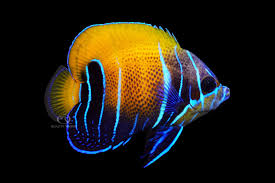
In Chinese folk beliefs, dragons are revered as powerful, mystical beings that are intricately linked with gods and deities. With a rich legacy rooted in mythology, folklore, and religious practices, the dragon holds a place of immense significance in Chinese culture. In this article, we will explore how the dragon connects with various gods and divine beings in Chinese folk beliefs, and how it has shaped spiritual practices and mythological narratives throughout the ages.
The Nature of the Dragon in Chinese Culture
Before delving into the specific connection between dragons and deities, it’s important to understand the nature of the dragon in Chinese culture. Unlike the fearsome, destructive dragons in Western mythology, Chinese dragons are benevolent, wise, and majestic creatures. They embody strength, good fortune, protection, and control over nature, particularly the elements of water, wind, and rain.
Chinese dragons are typically depicted as long, serpentine creatures with antlers, claws, and a mix of features from various animals, including fish, tigers, and eagles. Their connection to water, in particular, is important because water symbolizes life, fertility, and abundance. Due to their immense power and mystical attributes, dragons are considered not only protectors but also mediators between humans and the divine.
The Dragon as a Herald of Divine Power
In Chinese mythology, the dragon is often a symbol of the highest divine powers. As an emblem of the Emperor, the dragon was seen as the physical manifestation of celestial authority, representing the power granted to the ruler by heaven. The emperor’s reign was considered to be divinely ordained, with dragons being used to symbolize the emperor’s connection to the gods.
One of the most famous dragons in Chinese mythology is the Long Wang (龙王), the Dragon King. The Dragon King is a deity that governs water and rainfall, and he is often portrayed as a powerful figure who resides in the oceans and rivers. The Long Wang is a key figure in Chinese folk beliefs, particularly in relation to agriculture, since the success of crops depends on the timely arrival of rain. As such, the dragon is considered a divine mediator between humanity and the gods, able to ensure the prosperity of the people through its control over water and rain.
The Dragon and the Jade Emperor
The Jade Emperor (玉皇大帝), regarded as the supreme deity in Taoism and Chinese folk religion, is often associated with dragons. As the ruler of heaven and all the gods, the Jade Emperor’s authority is symbolized by the dragon, which is considered the protector of the heavens. The emperor’s throne is believed to be protected by the dragon, ensuring that divine power remains intact.
In many legends, dragons are sent by the Jade Emperor to perform tasks on earth or assist other gods in their missions. These dragons are portrayed as loyal servants, carrying out the will of the Jade Emperor and ensuring that cosmic balance is maintained. They are also seen as embodiments of the Emperor’s power, guarding sacred locations and defending the heavenly realm from malevolent forces.
The Dragon and the Four Heavenly Kings
The Four Heavenly Kings (四大天王) are important deities in both Buddhism and Chinese folk religion. They are believed to guard the four cardinal directions and protect the world from evil forces. In various myths and legends, dragons are associated with these deities, who use dragons as their divine companions or tools to protect the world from demons and malevolent spirits.
For example, the Four Heavenly Kings’ connection to dragons can be seen in the Buddhist iconography, where each of the kings is depicted with a dragon or dragon-like creature that aids in the protection of the cosmic order. Dragons are seen as loyal protectors of the Buddhist dharma, often serving as symbols of power and enlightenment in Buddhist temples and monasteries.
In some myths, the Four Heavenly Kings also use dragons to control natural phenomena such as rain, storms, and winds, reinforcing the connection between dragons and the divine forces that govern the elements. This connection highlights the dragon’s role as a mediator between the human world and the divine realm, ensuring balance in both realms.
The Dragon and the Goddess of the Moon: Chang’e
Another important deity associated with dragons in Chinese folklore is Chang’e, the Moon Goddess. According to legend, Chang’e was a beautiful and wise woman who was married to the archer Hou Yi. When Hou Yi was gifted with an elixir of immortality, Chang’e drank it to prevent it from falling into the wrong hands, ultimately causing her to ascend to the moon.
In many variations of the story, the moon is said to be inhabited by a dragon, symbolizing the connection between the moon goddess and the celestial dragon. The dragon in this context represents immortality and transformation, two key themes in the story of Chang’e. The imagery of a moon dragon conveys the mystical and powerful connection between the goddess of the moon and the dragon as an immortal celestial being.
Additionally, in some folk beliefs, it is said that the dragon protects the moon and the stars, maintaining harmony in the cosmos. The dragon’s association with the moon goddess is also a representation of the cycle of life, death, and rebirth, which is central to Chinese philosophy and spirituality.
The Dragon and the God of War: Guan Yu
In Chinese folk beliefs, the dragon also holds significance in the realm of warfare and protection, particularly through its connection with Guan Yu, the revered God of War. Guan Yu was a military general during the Three Kingdoms period, and his bravery and loyalty made him an iconic figure in Chinese culture. He was eventually deified as a god and worshipped for his martial prowess and protective qualities.
Guan Yu is often depicted with a dragon, emphasizing the connection between divine protection, military strength, and prosperity. In some myths, Guan Yu is said to ride a dragon into battle, symbolizing the union of power and divine protection. The dragon’s presence in these depictions reinforces the idea that the god of war has the support of the heavens, ensuring victory and prosperity for those under his protection.
The dragon, in this case, is more than just a symbol of protection; it represents the divine forces that assist Guan Yu in safeguarding his followers. The connection between Guan Yu and the dragon reflects the belief that success in battle and in life comes not only from physical strength but also from spiritual and divine guidance.
The Dragon and the God of Literature: Wenchang Wang
Wenchang Wang is the God of Literature, and in Chinese folklore, he is revered as the patron deity of scholars, writers, and students. As the deity responsible for imparting knowledge and wisdom, Wenchang Wang is often associated with dragons, which are believed to represent the flow of wisdom, knowledge, and enlightenment.
In many depictions, Wenchang Wang is shown sitting on or surrounded by dragons, symbolizing the idea that wisdom is divinely inspired. The dragon’s connection to Wenchang Wang highlights the importance of knowledge in Chinese society and the belief that intellectual and academic success is tied to divine favor. For scholars, invoking the dragon’s power is thought to bring good fortune in their studies and ensure success in the examination system.
The Dragon and Other Folk Deities
The dragon also shares associations with other folk deities in Chinese mythology, particularly those governing the elements and nature. The Dragon King (龙王), for example, rules over the seas, rivers, and oceans, and he is often depicted as a benevolent force who brings prosperity through the control of water. Local deities, regional gods, and other supernatural beings often have close relationships with dragons, using their power to protect their territories or assist humans in times of need.
Dragons are also tied to agricultural deities, as they are believed to influence rainfall and water sources crucial for farming. The link between dragons and fertility is significant in rural China, where the dragon is seen as a symbol of agricultural prosperity and a bringer of abundant harvests.
Conclusion: The Dragon’s Divine Legacy
Throughout Chinese folk beliefs and mythology, the dragon is not only a symbol of power and strength but also a close companion of the gods. Its connection to deities such as the Jade Emperor, the Four Heavenly Kings, Chang’e, Guan Yu, and Wenchang Wang highlights the importance of the dragon in maintaining balance in the cosmos, protecting the world from evil, and ensuring prosperity.
Whether as a divine mediator, protector of the emperor, or servant of other gods, the dragon’s role in Chinese religious traditions is multifaceted and profound. Through its connections with these deities, the dragon continues to serve as a symbol of divine power, spiritual protection, and earthly prosperity, remaining an integral part of Chinese folk beliefs and cultural identity.

